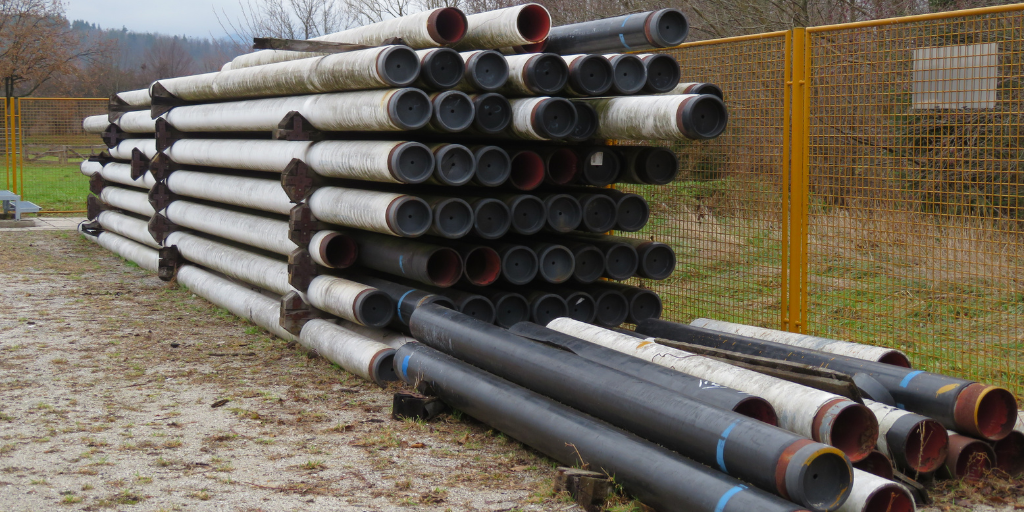The long-running controversy about the planned southern gas interconnector between Croatia and Bosnia and Herzegovina (BiH) has dramatically reignited this month. After fervent lobbying by the US Ambassador to BiH, a special law on the project was adopted by the first of two houses of the Federation of BiH entity parliament on 12 December. But political controversies have monopolized the debate, with hardly a word on its energy, economic or climate implications.
Pippa Gallop, Southeast Europe Energy Policy Officer | 18 December 2024

The main driver to build the southern gas interconnection between BiH and Croatia is ostensibly to enable BiH – or at least the Federation – to stop using Russian gas. The country currently has only one import pipeline via Serbia, which is mainly used to heat Sarajevo.
But the planned pipeline’s capacity of 1.5 billion cubic metres annually is six times as much as BiH’s 2022 consumption, and would bring gas to new areas of the country like Mostar. So it’s clearly aimed at expanding consumption, not just replacing it with non-Russian gas. In any case, it will take years before this project is built, and much faster options exist to cut Russian meddling in the country’s energy supply – like renewables.
The law on the project has been blocked for years due to disagreements within the Federation of BiH about the company in charge of the project. The existing transmission operator, BH-Gas, owned by the Federal government, has been developing the project, but the Croat HDZ BIH party wants a separate company to be set up in Mostar, as part of its overall strategy to gain more influence in the Federation.
It’s not surprising that this touches a nerve, as it goes to the heart of fraught questions on the country’s constitution. But it also prevents any debate about the merits or otherwise of the actual project.
Stopping the use of Russian gas is crucial, but framing the question as an either-or between buying from Russia or the United States, or BH-Gas versus a Mostar-based company, precludes questions such as how BiH can phase out fossil gas altogether, increase its energy efficiency and leapfrog straight to sustainable renewables.
This might sound optimistic, but it’s the only logical way forward. BiH has a very low level of gas dependence – less than 3 per cent of total energy supply in 2022, and in the Federation, the main issue is securing heating in Sarajevo. This is a major advantage, which must be maximised instead of increasing gas dependence.
The EU aims to reach carbon neutrality by 2050 at the latest, so if Bosnia and Herzegovina wants to be a member, it has to do so as well – and that includes oil and gas, not only coal.
The EU is making progress in this area, not only increasing its share of renewable energy, but also achieving an 18 per cent reduction in gas demand between August 2022 and May 2024. Several Member States also have bans on installation of new gas boilers in place. But the European Commission, particularly its Directorate-General for Enlargement, has been slow to realise that the Western Balkans can and must avoid getting bogged down in gas dependence, resulting in contradictory messages and support for outdated gas projects.
But increasing gas consumption in BiH would directly contradict the 2050 target, as it’s completely unrealistic to build, use and phase out new gas infrastructure by then.
The pipeline would take years to finish – and official estimates for such projects are usually wildly optimistic. The BiH section alone would be almost 169 kilometres long, partly on difficult mountainous terrain, with expropriation and financing still to secure. There’s no chance it will be finished before 2030, and it’s likely to be much later. So it’s hardly a short-term solution for Sarajevo to free itself from Russian gas.
Options like the Sarajevo heat pump project announced in 2023 are much more promising and could be realised more quickly.
If built, the pipeline will either lock BiH into increased gas use, or it will become a costly stranded asset, wasting scarce public money to pay off loans for nothing whatsoever.
It would not be the first time. In 2009, the European Bank for Reconstruction and Development approved a EUR 19 million loan for a gas pipeline from Zenica to Novi Travnik, which was built but has never operated. But the people of the Federation of BiH still had to foot the bill.
If the quality of the debate on the southern interconnector doesn’t improve soon, we may see something similar happening again, on a much larger and pricier scale.
The European Commission must play a decisive role in the Western Balkans, making it clear that gas is not the future. It needs to step up support for better insulating buildings, developing sustainable forms of renewable energy, increasing the use of heat pumps and improving transmission and distribution networks.
Never miss an update
We expose the risks of international public finance and bring critical updates from the ground – straight to your inbox.
Theme: fossil gas
Project: Fossil gas
